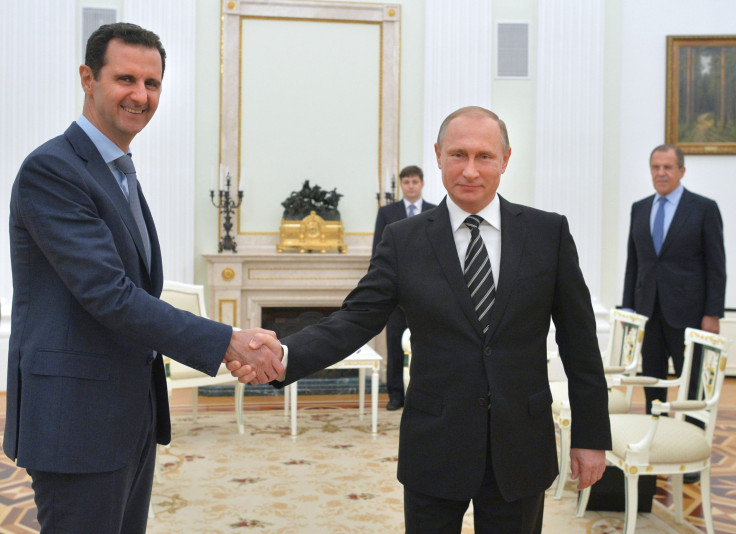Syria’s Assad Assures Russia’s Putin Of Cooperation On Ceasefire Deal

Russian President Vladimir Putin discussed several important issues regarding the Syria crisis with his Syrian counterpart Bashar Assad on Wednesday in a telephone conversation, reports said. Assad and rebel groups accepted a plan to stop the hostilities starting Saturday amid a warning from the U.S. government that the country would be hard to hold if the fighting did not stop.
“Various aspects of the Syrian crisis were discussed in the light of the tasks to implement the statement Russia and the United States made as co-chairs of the International Syria Support Group on the cessation of hostilities in Syria as of February 27, 2016,” the Kremlin said, according to Tass, adding: “Assad described the proposals contained in the aforesaid statement as an important stride toward a political settlement. In part, he confirmed the Syrian government’s preparedness to promote truce.”
The Kremlin also said, according to Tass, that the two leaders emphasized the importance of fighting the Islamic State group, Jabhat al-Nusra and other militant groups, which have been included in the list of terrorist organizations by the United Nations Security Council.
Assad reportedly confirmed that he is ready to cooperate with the Russian-U.S. joint statement released Monday, aimed to “achieve a peaceful settlement of the Syrian crisis with full respect for the fundamental role of the United Nations.”
Rebels backed by Saudi Arabia have expressed skepticism about the "cessation of hostilities" deal as it excludes attacks by the Syrian army and its Russian backers on the militant groups. The rebels said that Russia had in fact increased the number of airstrikes since the plan was announced, Reuters reported.
The Syrian government has, however, warned that continued intervention from foreign forces would jeopardize the deal.
"The proof will be in the actions that come in the next days," U.S. Secretary of State John Kerry told the Senate Foreign Relations Committee in Washington, according to Reuters, adding a reference to a contingency plan in place that could be implemented if the deal did not hold. Kerry also said that it will be clear within the next two months if the transition process to replace the current administration was serious.
Kerry said, according to Reuters, Assad will have to make “some real decisions about the formation of a transitional governance process that's real,” adding: “It may be too late to keep it as a whole Syria if we wait much longer.”
"There is a significant discussion taking place now about Plan B if we don't succeed at the table," Kerry added, according to Reuters.
Dmitry Peskov, the spokesman for Putin, told Tass, that “meticulous” work was needed to hold the deal in place. “Assad is the legitimate president of Syria, the only legitimate president of Syria. Naturally, he may have his own views on various modalities of the Syrian settlement. However, in this case Russia and the United States will use their influence, their potential to bring closer the stances of the countries that have diametrically opposite views on the settlement,” Peskov said.
On being asked if Moscow also has a backup plan of its own, Peskov said that the current focus was to implement the ceasefire agreements in Syria and not to prepare “plan B,” as mentioned by Kerry. Peskov said that active diplomatic work is underway and that such interaction between Moscow and Washington has a positive effect on both the countries to increase mutual trust.
“Very intensive contacts are being held because the countries [Russia and the United States] will now use all their influence on particular forces, groupings and sides in this conflict,” Peskov reportedly said, adding: “No doubt, this interaction helps to one degree or another to raise the level of mutual trust.”
© Copyright IBTimes 2025. All rights reserved.






















